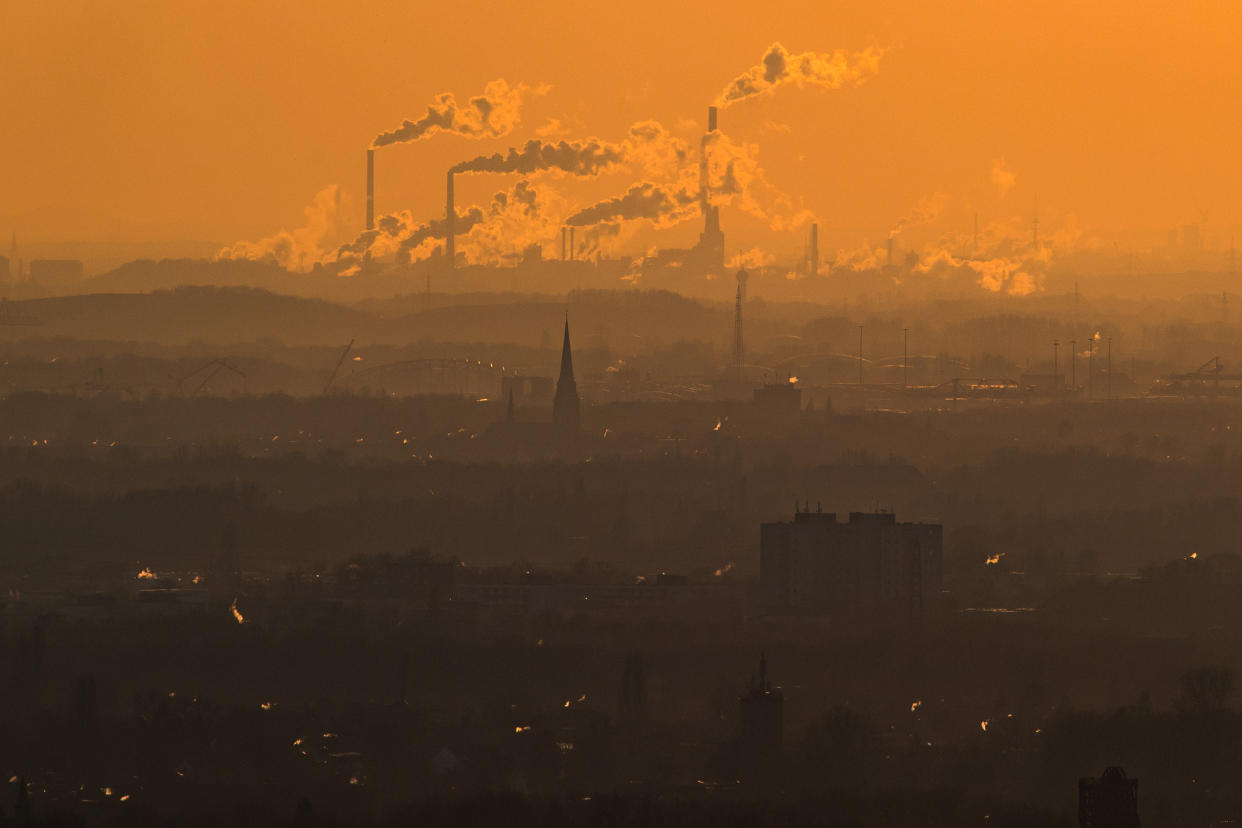What do climate conferences accomplish?

Representatives from nearly 200 countries gathered in Dubai earlier this month at the annual United Nations climate conference to establish a new agenda for the global response to climate change. The massive summit, known as COP28, ended with the release of an agreement that President Biden heralded as a “historic milestone” in the worldwide effort to curb emissions and avert the worst outcomes of a warming climate.
The most noteworthy part of that agreement is a provision calling for a transition away from fossil fuels. While that may seem like an obvious step in any climate plan, it actually marks a unprecedented breakthrough for a conference that’s built around the difficult task of finding a consensus among hundreds of nations with wildly different interests — ranging from petrostates that have built their entire economies around fossil fuels to island nations at risk of disappearing due to rising sea levels.
Though the provisions in the agreement are only recommendations, some of COP28’s most prominent participants celebrated it as a huge step forward. U.N. Climate Change executive secretary Simon Stiell said it was “the beginning of the end” for fossil fuels. John Kerry, Biden’s special envoy for climate change, called it a “very powerful gathering together of the aspirations” of everyone committed to solving the climate crisis.
But many of those outside of the summit were unimpressed. “This text is toothless and it is nowhere even close to being sufficient,” Swedish climate activist Greta Thunberg told Reuters. “It is a stab in the back for those most vulnerable.”
Why there’s debate
This fierce disagreement over COP28 is a microcosm of a broader debate on the value — or lack thereof — of these massive global climate summits.
Critics say these gatherings are nothing but empty theater that allow world leaders to make a big show of acting as if they’re serious about climate change, while producing little more than a weak list of recommended benchmarks that nations routinely fail to meet. They point out that, despite decades of bold declarations coming out of these conferences, global emissions hit a record high in 2023 — which was also the hottest year in recorded history.
Defenders of climate conferences say that, for all of their obvious shortcomings, we’d be in far worse shape without them. They make the case that these events set an important roadmap for how the world can undergo the incredibly complex task of decarbonizing the global economy. Others argue that real progress is made when so many important stakeholders are brought together, especially when it comes to investment in green energy.
What’s next
Climate is on the ballot in a number of major elections around the world over the next year, including in the United States. The outcomes of those races could lead to a significant shift in the international view toward climate change by the time nations gather for COP29 next November.
Perspectives
It’s important to set goals for decarbonizing, even if they’re not met
“The annual UN climate negotiations are, of course, not legally binding. But they send strong signals for what actions national governments should take, what policies they should implement, to ensure reductions in emissions and to avert a worsening of the climate crisis.” — Tina Gerhardt, the Nation
Climate summits have failed in the only metric that matters
“Nearly three decades of climate COPs have done nothing to reduce emissions, nor rein-in ever-climbing concentrations of carbon dioxide in the atmosphere.” — Bill McGuire, CNN
Truly important work happens at these conferences
“These are mostly good people, after all, who convened to reduce carbon emissions worldwide, with the focus on this issue alone, for two weeks. ... Sure, the event has been co-opted. ... But there are also powerful forces pushing for success.” — Auden Schendler, New York Times
Non-binding agreements are basically useless
“If countries don’t immediately move beyond the voluntary approach of the Paris Agreement and start imposing mandatory measures, we’ll face a climate disaster that is now unfolding far faster than most realize.” — Durwood Zaelke and Paul Bledsoe, Boston Globe
For all their flaws, we’d be worse off without climate summits
“We still can’t afford to abandon the entire COP process. Polluters and petro-states would like nothing more because, deeply flawed as COP is, it’s the only existing framework for global climate negotiations.” — Michael E. Mann and Susan Joy Hassol, Los Angeles Times
At least we’re finally identifying the right problems
“It seemed impossible just a couple of years ago that a climate summit agreement would name and shame fossil fuels, including oil and gas. It’s a moment of some progress. It doesn’t mandate anything, but it should help build momentum for more action.” — Adam Morton, the Guardian
These summits create the dangerous illusion that real progress is being made
“Claiming that [COP28] was somehow not a failure, clinging to bits of false hope, generates a powerful illusion that business as usual can continue. ... If we cling to false hope that it’s working, we will keep doing it, year after year, making no progress.” — Peter Kalmus, Newsweek
Conferences aren’t to blame for the world’s failures on climate change
“Ultimately, the atmosphere doesn’t really care about these negotiations. They don’t directly affect global warming. They only affect its trajectory if it actually translates to real action.” — Daniel Swain, climate scientist, to Foreign Policy


